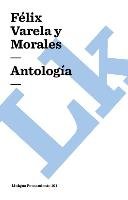Félix Varela fue elegido para representar a Cuba en las Cortes de España, donde abogó por la anulación de la esclavitud. En 1823, al restablecerse el absolutismo en España, se trasladó a Nueva York, y proclamó el derecho de Cuba a ser una nación independiente y soberana. El presente volumen recoge artículos publicados por Varela en El Habanero. Como se verá aquí se compilan desde textos políticos y de actualidad sobre la situación internacional de su época, hasta crónicas sobre los avances científicos y económicos. Asimismo aquí aparecen algunas de las críticas de que fue objeto el padre Varela por su posición a favor de la independencia de Cuba. Destacan además, por sorprendentes desde una mirada actual, sus observaciones sobre una inminente invasión de México y Colombia a la isla de Cuba.

